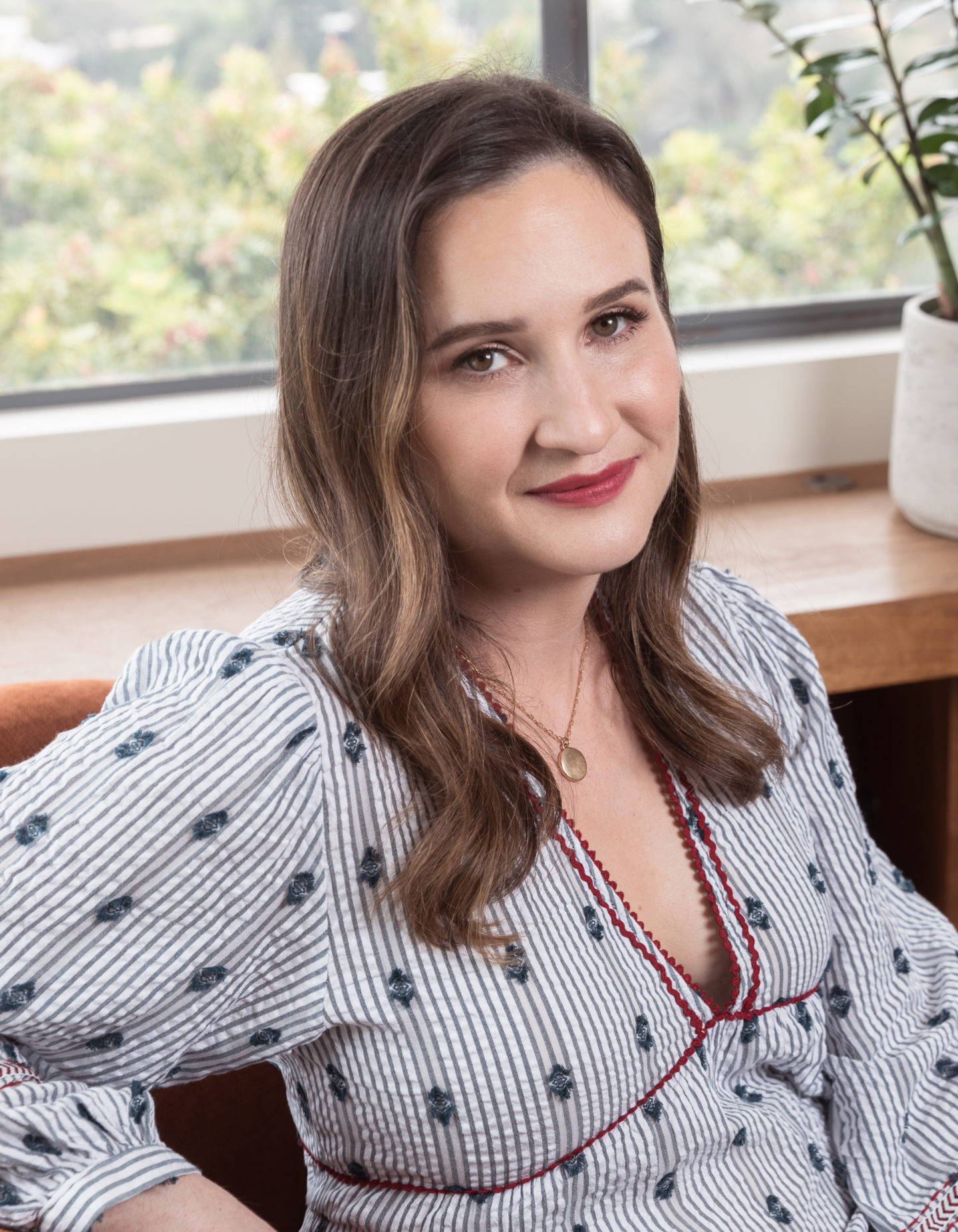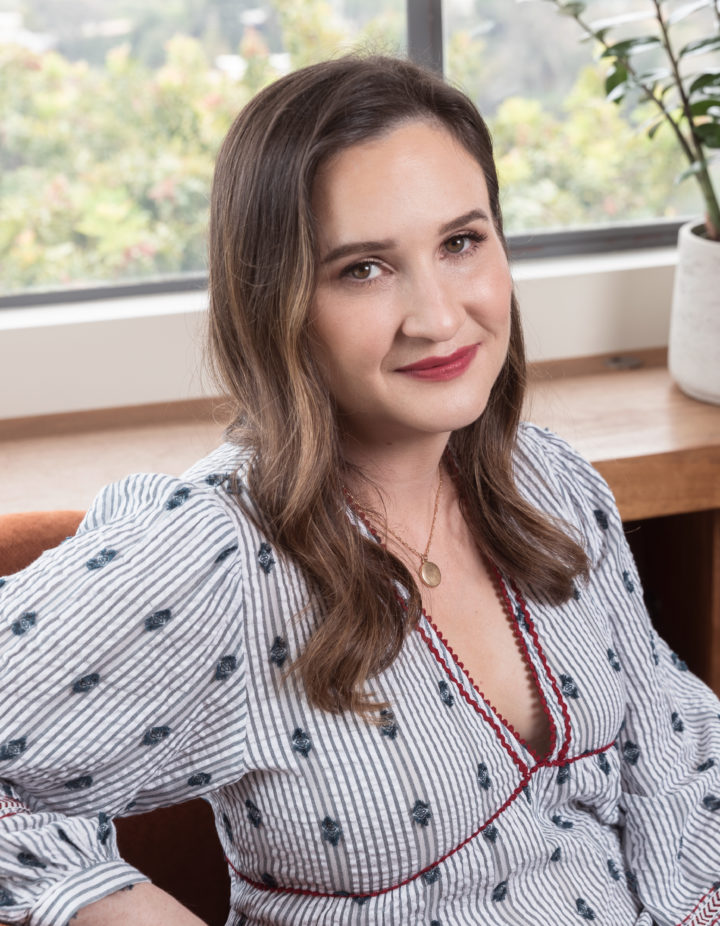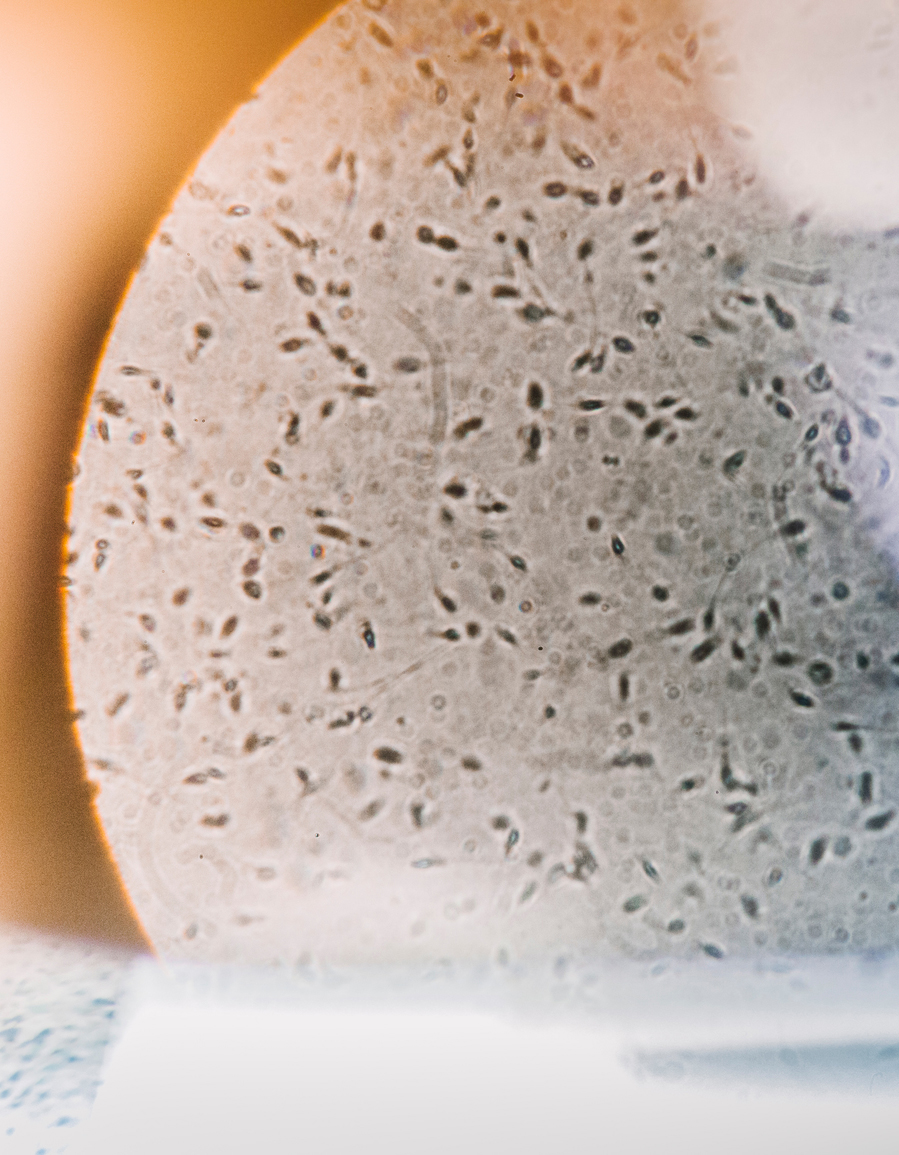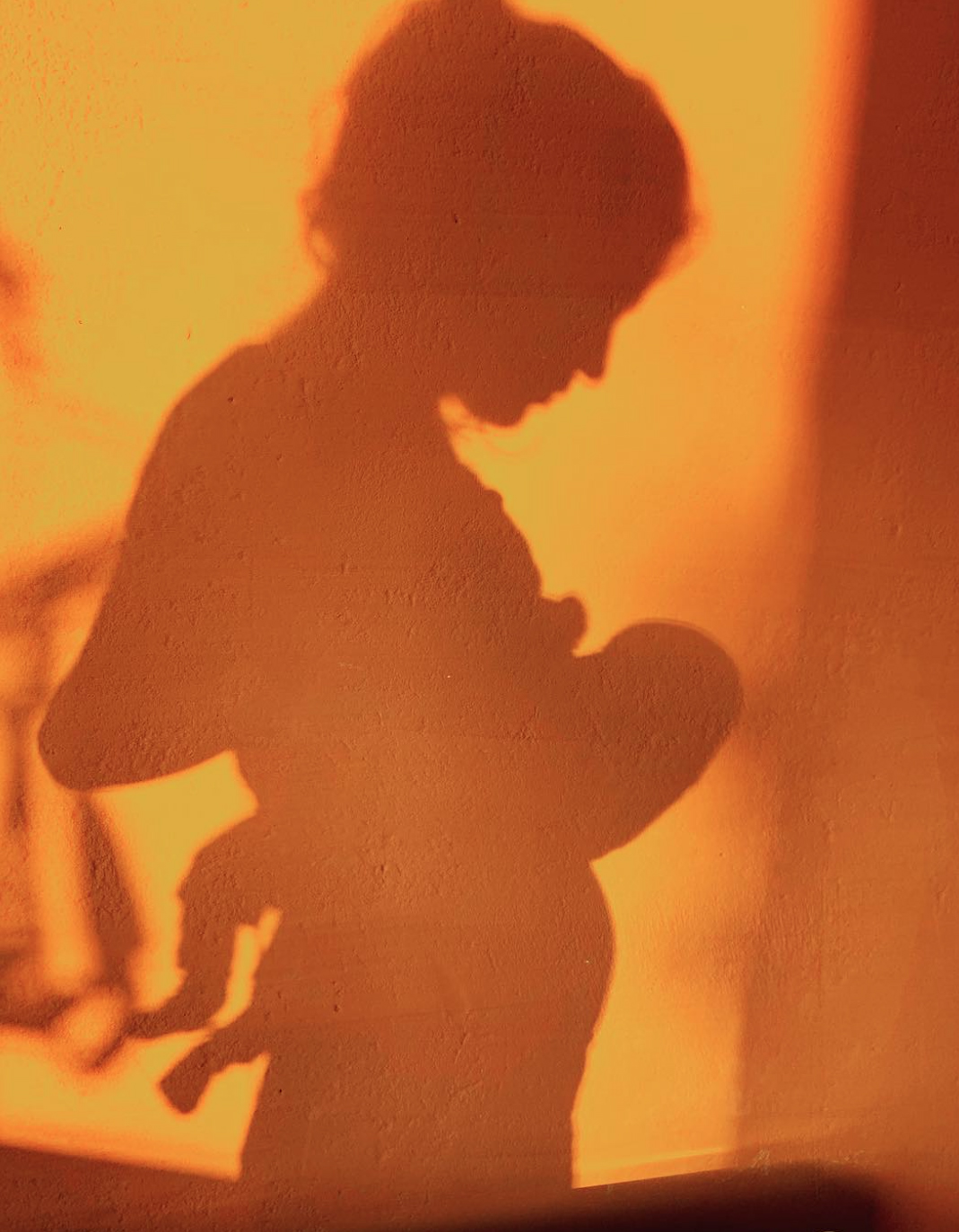Doree Shafrir considers herself a late bloomer. From interning at age 29 to meeting her husband in her late 30’s, the writer and Forever 35 podcast co-host has always felt behind in checking off the cruel life checklist that hangs over women’s heads once we enter adulthood. Particularly when it came to conceiving, Doree’s two-year IVF journey resulted in her having her son, Henry at age 41.
But, rather than wringing her hands over her age, in her new book, Thanks For Waiting, Doree explores the enormous pressures women feel to hit particular milestones at certain times and how we can redefine what it means to be a late bloomer. We sat down with the author to talk everything from internet dating to mom friend dynamics, and how there’s value and wisdom that comes with the luxury of age and time.
So what was the inspiration behind writing this book?
I felt that I hadn’t read anything that spoke to me in the way I was envisioning this book. I wanted to touch on infertility, as it isn’t always written about honestly and openly. I wanted to counter that narrative and show what has led me to where I am now, and I wanted to reassure people that you don’t need to have it all figured out by the time you’re 30 or 40 or 50. It’s all an evolution and process.
The book was originally a series of connected essays. Then, about a year ago I realized that this isn’t a book of essays, it’s a memoir. It’s a narrative. The takeaway is that it really is OK to live life at your own speed and think about the things that are important to you. Not just that you should be doing things at a certain time because all of your friends are doing it.
When did you come to that realization? I would imagine it’s probably easier to come to once you start getting some of those things you want in life.
I had different revelations of different things at different times. One of the things I talk about in the book is dating in my mid 30’s. I came to this revelation that I had spent so much time in my 20’s and 30’s, even in relationships, where I was so constantly worried about what the other person thought of me. Did they like me? Were they attracted to me? Whether I was into them took a backseat.
It wasn’t until I started going on a lot of dates when I moved to LA that I started approaching it differently. It was almost as though I was going on so many dates that I didn’t assign each one so much importance. When you’re not dating a lot, you think, this could be the one and you get yourself so nervous and excited. That’s fine but it’s also so high stakes and for me, it led to a lot of not allowing myself to be authentic because I just wanted to put my best self forward. That’s good but it leads to people not being themselves. But then I went on so many dates that each one turned into just another date and I could relax. I could ask myself, am I into this person? If not, go on another date next week. It was a big mind shift.
Then, when I met Matt, I was able to say, I do like this person. This is a person I legitimately like. But I did have those revelations about certain things as I was going through them. And the infertility stuff has been tough because it’s just a constantly moving train. Once you get on, you feel like you can’t get off. So being able to reflect on that in the moment has been harder. The book helped me do that for sure.
Talk to us about getting pregnant at 41. What that experience was like?
I was bracing myself for people to casually refer to my geriatric pregnancy. I heard all these stories about super insensitive doctors. Mine never said that. The only time she brought up age was if I brought it up. She was basically like, look, you’re healthy. I see you don’t have high risk factors outside of age, so we’re just going to proceed as usual. The only other time it came up was on my due date. I went in because I hadn’t gone into labor and was told that my fluid was low and I’d have to be induced. My doctor said, “You’re 41, I don’t feel comfortable letting you go home and getting it back up on your own. Maybe if you were younger, or at 38 weeks.” But really, I had the opposite experience, which made it all calmer and more comforting for me.
With being pregnant at 41, I was so happy just to be pregnant. I had gone through so much to get there. I really just wanted to embrace this and do it the way I wanted to do it. That being said, of course it wasn’t all amazing. I was still waking up and peeing three times a night. I still had heartburn. But being older, I had a perspective I couldn’t have had when I was younger or if it were easy to get pregnant. On the flip side, I was worried I’d always be an IVF mom and that the specter of IVF would always haunt me. I didn’t want that to be the case, either. I wanted a pregnancy where I wasn’t thinking about what I had to do to get there.
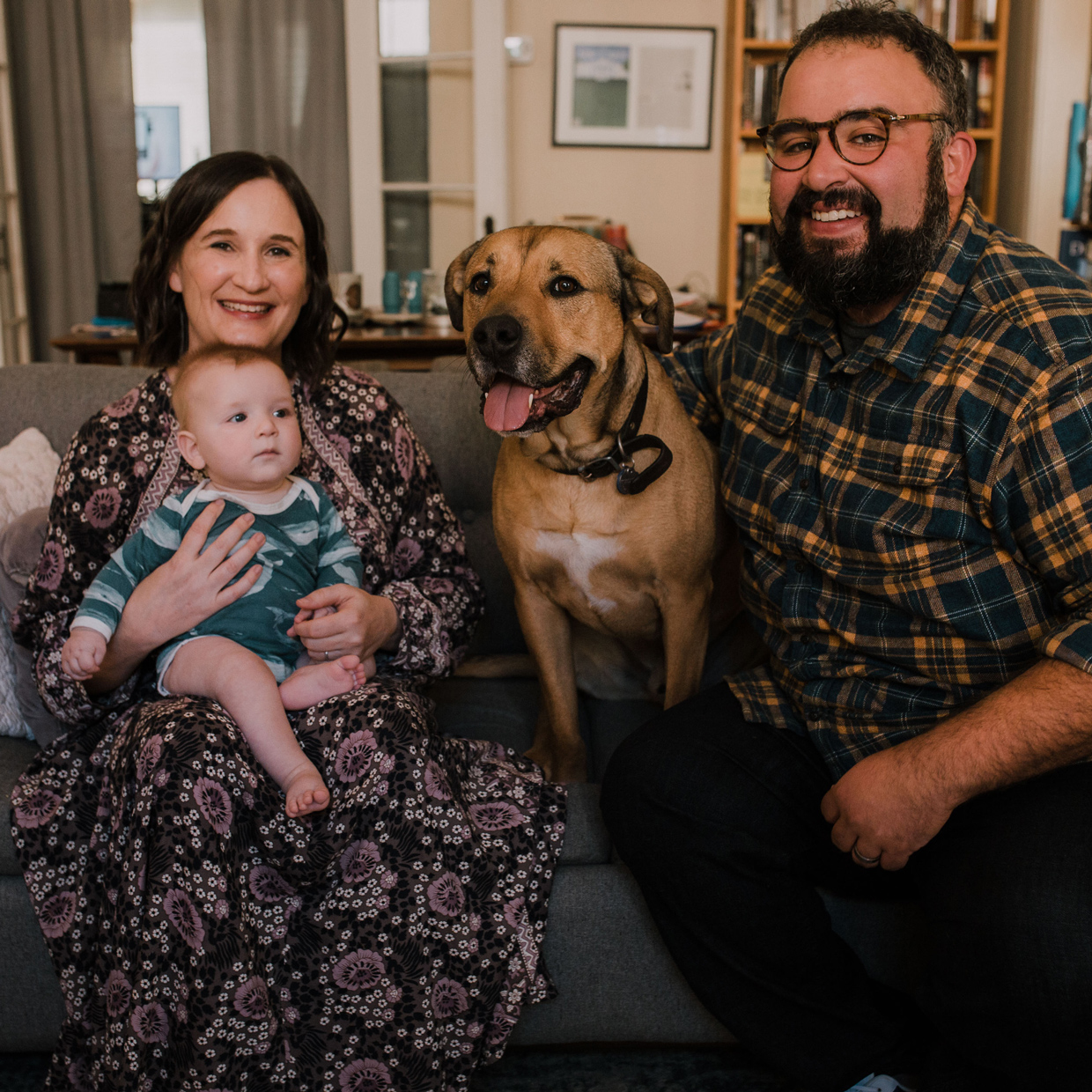
Photo courtesy of Stephanie Entin
What surprised you about your pregnancy?
I had a really awful 1st trimester. I was so nauseous. I couldn’t get out of bed. I gradually got better. During my 2nd and 3rd trimesters, I really allowed myself to enjoy being pregnant. I never thought I’d be that person. I read about people like that and thought, no, that’s not real. They’re just saying that. But I felt great physically. Obviously that’s not the case for everyone. But it was nice. I didn’t second guess it. I let myself be happy and enjoy it.
Can you speak to your experience not getting pregnant and how you got through it?
It sucked for quite some time, especially in the thick of it. Before I got pregnant with Henry, we did two transfers that didn’t work. I was putting my body through all that IVF and it was physically and mentally draining. I started feeling like everywhere I went, people were pregnant or had kids Or, if it was an adults only event, people were talking about their kids the entire time. I couldn’t escape it. I thought, was I always going to feel this way? Will this define me? That was very depressing. But I had to let myself feel bad. There was no way for me to move past it. I just had to be sad and angry. I got angry about it. It sucked.
I will say my close friends and family who got pregnant while I was going through this were all so kind and amazing. They did exactly the right thing you should do. My close friend sent me an email. When my sister got pregnant, she was so thoughtful about it in a way that wasn’t pitying. I was also sensitive to that. I felt like people were walking around with pity in their eyes. That was the narrative for me. I talked about this on the podcast, but the way you should tell someone struggling to get pregnant that you’re pregnant is never over Facetime or in person. The best way is an email. Let the person process it on their own. Let them respond on their own time. They might have complicated feelings about your news that doesn’t require them to put on a happy face for you. They can be happy for you. But let them process what it’s like for them. I get the impulse, but think about it from the other person’s perspective.
I wanted to reassure people that you don’t need to have it all figured out by the time you’re 30 or 40 or 50. It’s all an evolution and process.
Were there funny moments throughout your 4th trimester when you realized, yep I’m an older parent?
There was a woman in one of my mommy and me classes. She was literally a model. She was 28 when her son was born, and at three months, her stomach was flat. She was in regular jeans. Now, to be fair, two of my very close friends were also 10 years younger, and they didn’t recover like that. It was just funny. For the most part though, people in classes and on the playground just assume I’m their age. Because unless you look much older or much younger, people assume they’re the same age as you. It is a weird thing. I’m not 33. So it does sometimes feel like I’m in this different place.
The other thing is that I’m not antisocial, but I feel so awkward initiating conversations with parents on a playground. It brings up all these high school insecurities and I’d rather sit on the edge of a playground watching my son play. Like, OK I’m the weird loner and maybe that’s a function of age. I don’t feel the need to manically befriend people.
How has age affected your parenting style?
I think I’m more cognizant of boundaries and being able to do a lot more work on myself in thinking about how I was raised than I might have been able to do 10 years ago. That’s made a difference. I also try to be good about picking my battles. Thinking about what boundaries I need to hold and which to let go of. I definitely don’t care as much. Maybe that also goes back to the playground. I really don’t feel the need to befriend people or make conversations. I have close mom friends I made through parenting classes, and a few other random friends who had kids at the same time. I just want to focus on my kid and I don’t care what you think of how I’m parenting him. I think that’s a function of being older and having more perspective on what’s important.
What are some lessons you’ve learned from approaching everything a bit later?
I started doing one thing while dating as a strategy. It’s an exercise in picturing what life could look like if you don’t get the things you want. For me with dating, I’d think, if I don’t meet someone and get married, what does life as a single person look like? I thought about it, and it sounded like a great life. It was the same with getting pregnant. I’d imagine, what does life as a childless couple look like? Oh, well, that’s a nice life. And so now, as we’re trying to have another kid now, and it’s almost definitely not going to happen, I’m letting go of that, and asking what does our life and Henry’s life look like as an only child? What are the benefits of that? Initially it felt counterintuitive, as though I wasn’t manifesting the thing I wanted, but it helps bring a certain peace.
When you’re constantly focused on the thing you don’t have, you ignore the present. You ignore what you do have. I don’t want to spend all of my son’s young childhood trying to have another kid and miss this time. That’s what I’d say to people. However life turns out, it’s good to think about all the scenarios and how you’d react to them.
